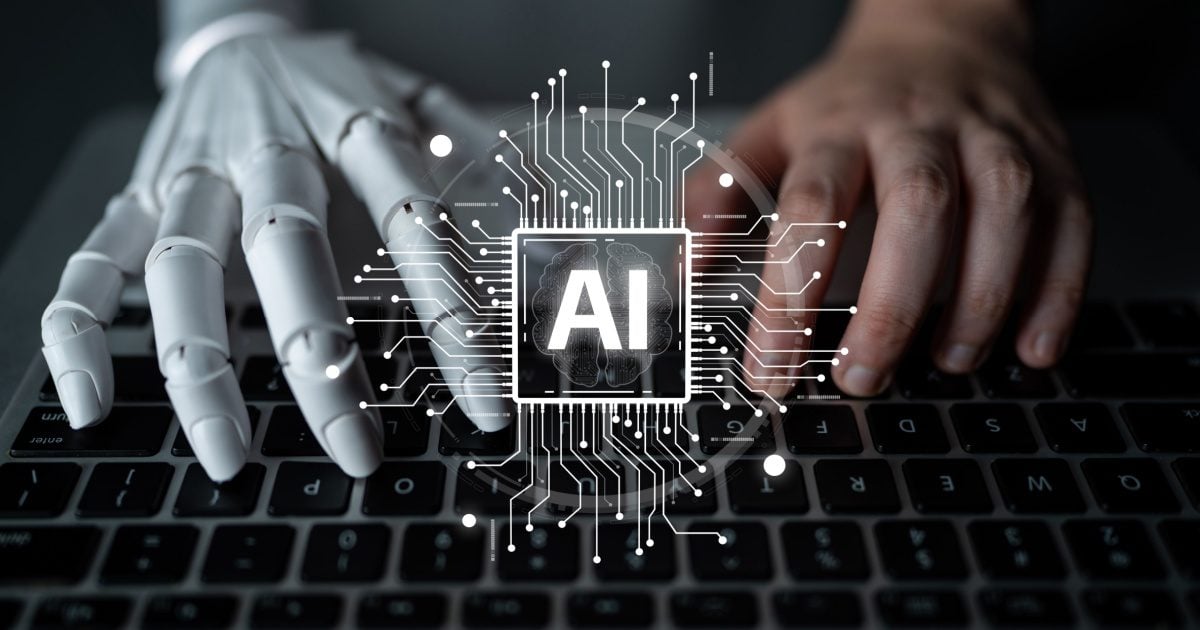
Crossing the efficiency and ethics streams of AI

In an era defined by rapid technological advancements, artificial intelligence (AI) stands at the forefront of innovation.
But while the promise of efficiency and optimization drives AI adoption, it raises significant questions about ethics, transparency, and the balance between human oversight and machine autonomy.
The expanding role of AI in logistics
AI’s footprint in logistics is growing exponentially. Companies are leveraging AI to optimize supply chains, predict demand fluctuations, and automate labor-intensive processes. According to recent data, 64 percent of logistics companies have adopted AI-based solutions for supply chain management, and 52 percent have implemented AI for warehouse automation.
Generative AI models in logistics can analyze vast datasets to enhance supply chain visibility, optimize inventory levels and reduce errors. Predictive analytics tools forecast inventory needs, minimizing waste and improving customer satisfaction.
A recent study has revealed that:
- AI-enabled demand forecasting can improve accuracy by up to 50 percent.
- AI-powered route optimization can reduce transportation costs by up to 15 percent.
- Last-mile delivery solutions using AI can increase efficiency by 30 to 50 percent.
- 72 percent of logistics firms using AI report improved delivery times.
Before AI integration, logistics processes were often manual, time-consuming, and prone to errors. Today, automated systems streamline operations, such as warehouse management and last-mile delivery, to enhance decision-making processes and achieve efficiency highs.
Navigating ethical challenges in AI adoption
AI-driven decisions must be explained well to ensure stakeholders understand the rationale behind automated choices. Without this clarity, companies risk eroding trust among customers and partners.
A notable example is the recent controversy surrounding OpenAI. Originally founded in 2015 by Sam Altman as a nonprofit to benefit humanity, OpenAI later introduced a for-profit arm to attract investment. Its unusual structure — combining a non-profit mission with a for-profit arm — led to internal conflicts. This dichotomy reflects the broader tension in AI development: striking a balance between rapid innovation and ethical considerations.
Rayid Ghani, a professor of machine learning and public policy at Carnegie Mellon University, highlighted a critical issue: “The AI that we’re looking at now is immature. There are no standards, no professional body, no certifications. Everybody figures out how to do it, figures out their own internal norms.” This lack of regulation underscores the challenges industries face in adopting AI responsibly.
Balancing efficiency with ethics
Navigating the logistics industry’s relationship with AI is a delicate balancing act. Overreliance on AI can create tension between pursuing efficiency and maintaining ethical standards.
Consider the case of autonomous delivery vehicles: while they promise cost savings and faster deliveries, concerns about job displacement and the environmental impact of increased automation remain unresolved.
Another example is the widespread use of deepfakes, which have been employed maliciously to spread disinformation or impersonate individuals. These incidents underscore the broader risks associated with unchecked AI development, including within logistics.
To mitigate these risks, 68 percent of logistics professionals now see AI as critical for competitive advantage, but also recognize the need for ethical safeguards. Companies must adopt robust policies to prevent AI misuse and unintended consequences.
As AI technologies are integrated into businesses to optimize operations, ethical considerations should be prioritized in tandem. Best practices in data governance and ensuring algorithmic transparency are key to navigating the AI dilemma.
Additionally, companies ought to invest in AI training for their workforce to ensure that employees remain integral to operations.
Preparing for an AI-driven future
As the logistics industry continues to adopt AI, companies must proactively address the associated ethical challenges:
- Establishing industry standards by collaborating with stakeholders to develop clear guidelines for ethical AI use in logistics.
- Fostering transparency and ensuring that AI-driven decisions and applications are justifiable.
- Investing in workforce development by equipping employees with the skills needed to collaborate effectively with AI systems.
- Regularly assessing the impact of AI technologies on operations and stakeholders.
AI is reshaping logistics, offering unprecedented opportunities for efficiency and innovation. However, its adoption comes with responsibilities that cannot be overlooked.
By embracing a thoughtful and ethical approach to AI, the logistics industry can pave the way for a future that is both efficient and equitable.
ALSO WORTH READING














 English
English